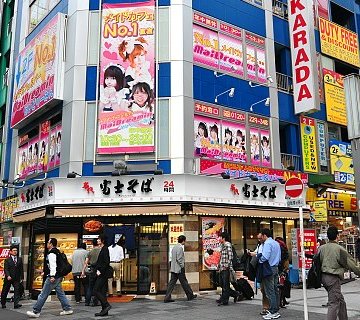- About
- Topics
- Picks
- Audio
- Story
- In-Depth
- Opinion
- News
- Donate
- Signup for our newsletterOur Editors' Best Picks.Send
Read, Debate: Engage.
| located: | Japan |
|---|---|
| editor: | Vanessa Ellingham |
Japan must ban sexually abusive images of children in manga comics, despite claims that such a move would threaten freedom of expression, says the UN’s special envoy on child protection.
Maud de Boer-Buquicchio praised the country for passing a law last year that banned the possession of abusive images of children, but said it contained loopholes that allowed exploitation to continue.
“When it comes to particular, extreme child pornographic content, manga should be banned,” De Boer-Buquicchio said at the end of a week-long visit to Japan.
The UN’s special rapporteur on the sale of children, child prostitution and child pornography, acknowledged that artists and publishers faced difficulty in “finding the right balance” between artistic freedoms and the need to protect children. “I accept that the freedom of expression argument should prevail when it comes to adult pornography.”
In June 2014, Japan banned the possession of child sexual abuse imagery after years of delay, but disappointed campaigners by not including the multibillion-yen market in manga comics, animated films and video games.
There was a grace period of a year to comply, but lawbreakers now face prison terms of up to a year and fines of up to 1m yen (£5,500).
Manga
artists and publishers have long resisted government attempts to ban certain images, labelling it an attack on freedom of expression. Dan Kanemitsu, a manga translator, accused de Boer-Buquicchio of “mixing reality with fiction”, adding that there was a difference between abusive images featuring actual children and depictions of childlike characters in manga.
“There is no such thing as manga and anime child pornography,” he said. “Child pornography entails the involvement of children, and we must confront it for that reason. [De Boer-Buquicchio] meant sexualised depictions of childish looking characters in manga and anime. Many male and female artists in Japan draw characters in an art style that looks childish to western eyes. Therefore it is a rejection of an art style popular in Japan.”
Kanemitsu said he did not believe Japan’s resistance to expanding the ban to include manga would damage its international image. “I think many people will see the logic of protecting free speech, as long as no actual people are harmed,” he said.
